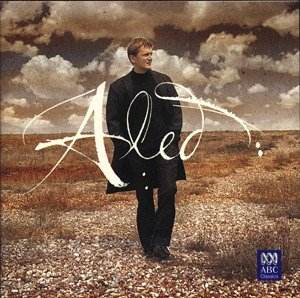Aled
Jones was brought up in Llandegfan on Ynys Mon. This is better
known in the English-speaking world as Anglesey, an island off
the coast of North Wales and connected to the mainland by two
famous bridges. I deliberately use the Welsh names because the
language and culture of Wales have been fundamental to Aled’s
career and contributed significantly to his original fame as a
boy treble (soprano). He began singing at the age of six in local
concerts and ‘Eisteddfodau’ (Welsh music competitions). At the
National Youth Eisteddfod of 1982 he won both the solo and ‘Cerd
Dant’ for under twelves. Such competitions and festivals involved
singing in Welsh, Aled’s first language. This Celtic language
is not a brogue, but distinct in its mode of production with many
sounds being made behind, and lower than, the soft palette or
pharynx. The spoken language, particularly in North Wales, has
a musical lilt albeit with a metallic edge. Aled’s strong voiced
boy soprano achieved local fame. BBC Wales Television featured
a programme about him when he was aged fourteen. His fame quickly
took hold, and allied to a late puberty, his voice not breaking
until he was sixteen, one Platinum album followed another.
With
the passing of puberty Aled the boy soprano disappeared. However
the young man emerged as a TV presenter on the Welsh language
TV channel. It would appear also that he presented ‘Songs of Praise’
on ABC Television (Australian Broadcasting Corporation) and it
is their associated record company that has provided Aled with
the opportunity of this album.
I
provide the foregoing, none of which is contained in the enclosed
booklet, because it provides the background for my comments on
the disc. If Aled had been resident in an English Cathedral Choir
School he would have learned about supporting the voice and control
of breath from the diaphragm. This is so important in both legato
and when rising up the vocal register. His tenorish voice, in
purist terms, is ill supported, his phrasing lacking and his higher
notes squeezed. But is this the basis that potential purchasers
of the disc will consider before laying out their money? I suspect
not. They will be happy with the easy listening mode of a variety
of well-known vocal standards interspersed with traditional items
including ones in Welsh. Aled’s voice is soft and often the middle
is a near croon, but the overall effect is tuneful and easy on
the undemanding ear. The recording is clear with Aled’s voice
given added bloom. There is even a track, ‘O Holy Night’, Tr.14,
of the man singing with himself, the boy soprano of 1984. The
choir is virile in their support and the harpist’s contributions
wholly delectable.
The
accompanying booklet has the words of the various items and a
variety of photographs of Aled, in a rather dowdy outfit, against
a backdrop of what looks like the more derelict parts of Ynys
Mon. Definitely one for those with long memories who were seduced
by a boy soprano from Wales.
Robert
J Farr
